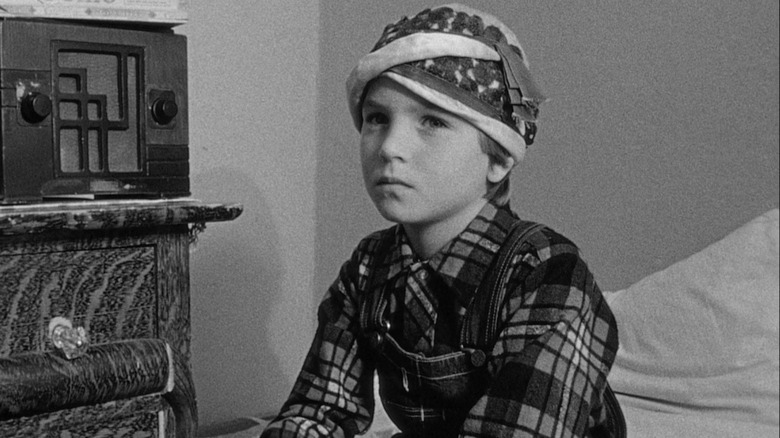
(Welcome to Did They Get It Right?, a series where we look at an Oscars category from yesteryear and examine whether the Academy's winner stands the test of time.)
Few directors have had as good a three-year run of movies as Peter Bogdanovich did from 1971-73 with "The Last Picture Show," "What's Up, Doc?," and "Paper Moon." Each one demonstrated his ability to create big ensembles of people who all feel like fully realized people that you could easily follow off-screen and imagine their whole life.
Consequently, he directed six different actors to Oscar nominations in that span and three of them won. The first two were Cloris Leachman and Ben Johnson for "The Last Picture Show," both of whom were veteran character actors. The third, though, was someone making their feature film debut. Not only was this her first movie, she was just 10 years old when she won. That person was Tatum O'Neal, who took home Best Supporting Actress for "Paper Moon."
It's an extremely well-deserved win. Few actors of O'Neal's age have delivered raw human truth and spitfire humor at the same level. Frankly, she outpaced far more seasoned performers than her and nearly blew her co-star Ryan O'Neal -- who also happens to be her real-life father -- out of the water. When I describe the two O'Neals as co-stars, I mean it. This is a film about their journey and bond. And yet ... Tatum O'Neal won Best Supporting Actress, not Lead.
The Academy has a long history of category fraud, succumbing to campaigners jockeying the system to give an actor better odds of winning. One of the biggest groups affected by this is younger actors, often finding themselves in the supporting races almost by default. And I always find it to be condescending.
The Diminishment Of The Young
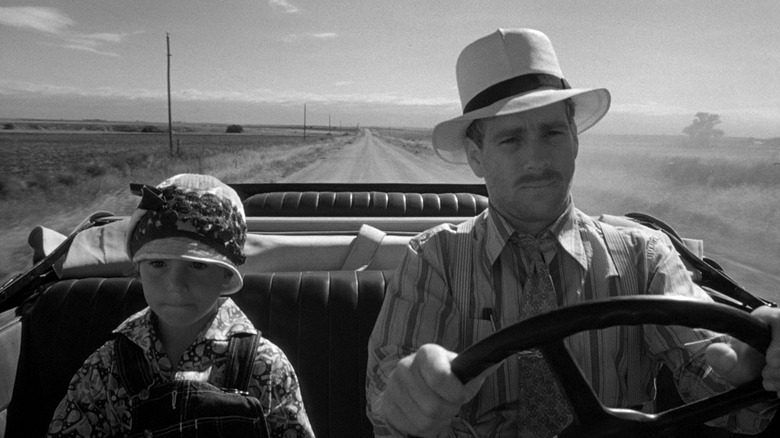
One of the more annoying phrases — especially when it comes to art — is "paying your dues." In some professions where accumulated knowledge and experience is key, like medicine or law, that phrase makes a little more sense. But if you have shown that you are able to do something, I don't see why there should be gatekeeping around you being recognized for your work, either by promotion or an award.
Youth, by its nature, cannot have experience. They haven't had the time to build up a reputation in the industry, and if you are going to be considered the lead of a major, Hollywood-recognized film, you need to have some kind of reputation. This becomes even trickier when the other people in the cast are people who have established industry reputations.
In the case of "Paper Moon," Ryan and Tatum O'Neal are both co-leads. This was Tatum's very first film, but Ryan was a major star at this point, with big hits like "Love Story" and "What's Up, Doc?" under his belt. He was a bona fide leading man. No one was going to mistake him for a supporting player in this film. Add in the fact that Tatum is Ryan's daughter, which establishes a hierarchy in life as well as art.
This kid co-lead dynamic can be seen everywhere. Abigail Breslin was nominated for Supporting in "Little Miss Sunshine." Same for Haley Joel Osment for "The Sixth Sense." Sure, Greg Kinnear and Bruce Willis are big-name leads, but that shouldn't diminish their younger counterparts -- as if someone would be embarrassed for sharing the spotlight with a child. Only when the kid has the spotlight to themself can they be bumped up, like Quvenzhané Wallis for "Beasts of the Southern Wild."
Stalwarts Vs. Fresher Faces
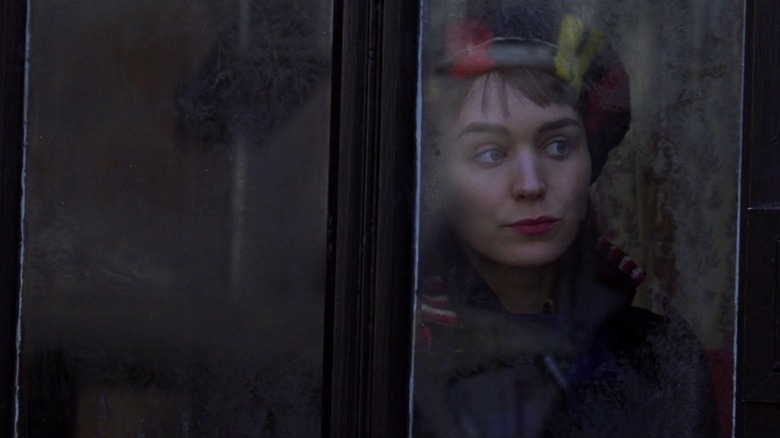
Children are not the only ones who can't get the respect and backing as the leads of their own stories. This extends to any actor who hasn't had the equivalent experience of their co-star. Sometimes, the person is the lead of the film even more than the famous name who gets that lead recognition. A recent example of this was Rooney Mara being nominated for Best Supporting Actress for "Carol," while Cate Blanchett got nominated in the lead acting category.
While Blanchett plays the titular character, Mara's Therese is the protagonist of the film, and the story is told through her eyes and experience. The exact same thing happened to Alicia Vikander that year, who ended up winning Best Supporting Actress, despite being more the lead of "The Danish Girl" than Eddie Redmayne, who earned a Best Actor nomination. Their already Oscar-winning counterparts had earned the status as people who belonged in that category, whereas Mara and Vikander could be seen as second fiddles.
You may have noticed how most of the examples I have given so far are female actors, and they are the ones who have to deal with this minimization far more often, especially if their co-lead is a man. The patriarchal structures of society unnaturally see the woman as being the support for the man's story. We have seen this in recent years with Maria Bakalova in "Borat Subsequent Moviefilm," Viola Davis in "Fences," Bérénice Bejo in "The Artist," and, most egregiously, Hailee Steinfeld in "True Grit," bringing it back to child actors.
A lot of this is gamesmanship, with studios trying to best position their actors to get nominated or win awards. But when you constantly fall into the same misogynistic trap, all you're doing is reinforcing extremely damaging stereotypes and attitudes.
It Does Happen To Men Too
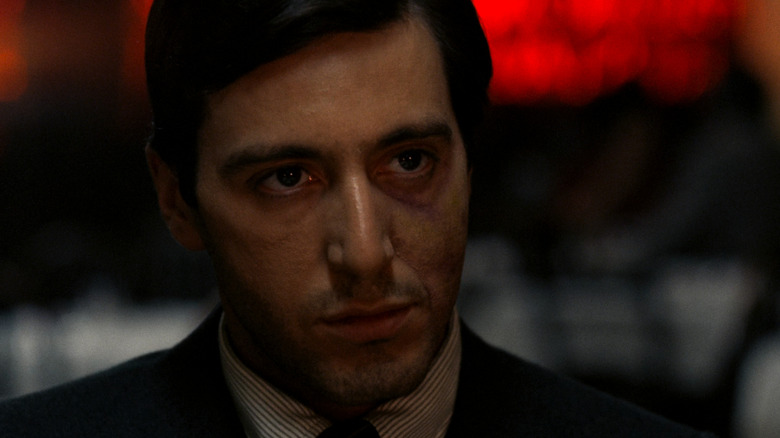
In the case of men, they don't have as big of a hurdle to climb when it comes to people thinking that a movie could actually have them at the center. The patriarchy sets it up that way. That being said, they still do often find themselves in the same space of lacking in dues paid. Take what is probably the most example of this blatant category fraud with Al Pacino being nominated for Best Supporting Actor for "The Godfather," while his co-star Marlon Brando won Best Actor.
Like "Carol," Brando may be playing the titular character, but the film is mostly through the eyes of Pacino's Michael Corleone, and the character arc is entirely his. In terms of the film itself, you would have an easier time saying Brando is supporting than the other way around. At that time, though, Pacino was a nobody getting his first major role. He couldn't compete with an Oscar winner with decades of experience.
Sometimes, young men do end up falling into the Supporting category when there's no absolutely no excuse for it. Just a few years ago, we had LaKeith Stanfield getting nominated for Best Supporting Actor for "Judas and the Black Messiah" alongside Daniel Kaluuya, meaning that the film had no lead. Casey Affleck wound up in Supporting for "The Assassination of Jesse James by the Coward Robert Ford" — despite being that film's unquestionable lead — because Brad Pitt's a giant star.
"Green Book" is a two-hander between Viggo Mortensen and Mahershala Ali, but Ali ended up in Supporting Actor. This happened to Dev Patel twice, getting nominated for Best Supporting Actor at the SAG Awards for "Slumdog Millionaire" and at the Oscars for "Lion." It's one thing to game the system. It's another to break it.
A Disadvantage For Actual Supporting Players
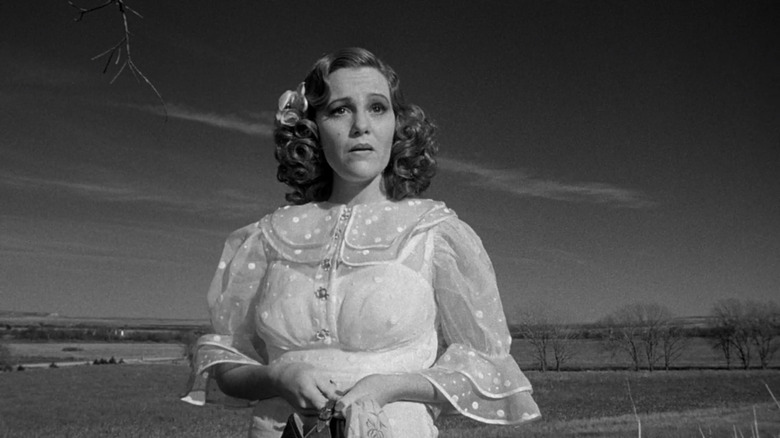
While there are a myriad of cultural and societal issues behind this kind of category fraud, the main reason it gets done so frequently is that the studios feel the actor will have a better shot at winning the award if they don't compete in the "main" category. Oftentimes, it pays off. Alicia Vikander won. Viola Davis won. Mahershala Ali won. And, of course, Tatum O'Neal won, bringing it back to where we started. Because these are leading roles, it gives the performer far more range and space to make their mark on the audience, which is what you need to win an Oscar. But where does that leave the actual supporting actors?
Nominated alongside Tatum O'Neal that year was another actor from "Paper Moon" in Madeline Kahn. Though she was 21 years older than O'Neal, this was only Kahn's second movie, previously appearing in Bogdanovich's "What's Up, Doc?" This is actually a true-blue supporting performance, and in just a few scenes, Kahn shows off her trademark hilarious side, as well as a heartfelt, dramatic one she rarely got to show onscreen.
It's a beautiful performance, but when you stack it up against the breadth of what O'Neal could do as a lead, they can't compare. She, along with fellow real supporting players Candy Clark ("American Graffiti") and Sylvia Sidney ("Summer Wishes, Winter Dreams"), never really had a shot of winning over O'Neal.
The one major challenger that year was another child: Linda Blair for "The Exorcist," but she very well could have been considered the lead actor of that film alongside Ellen Burstyn and Jason Miller, though he also found himself in Best Supporting Actor. Blair actually won the Golden Globe, but that's because the HFPA surprisingly got O'Neal's category placement correct.
Could Tatum O'Neal Have Won Best Actress?
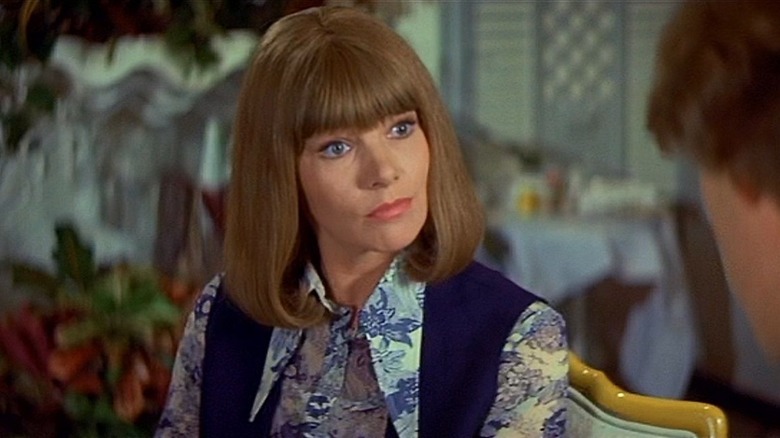
Let's imagine a world where the Academy didn't accept this fraudulent category placement, and Tatum O'Neal competed in Best Actress. Would there still be a path for her to become the youngest Oscar winner of all time? Well ... here is where you understand why this category jockeying is done. The other nominees that year were Ellen Burstyn for "The Exorcist," Marsha Mason for "Cinderella Liberty," Barbra Streisand for "The Way We Were," Joanne Woodward for "Summer Wishes, Winter Dreams," and the winner, Glenda Jackson for "A Touch of Class."
Right off the top, O'Neal has to replace one of these women, and that is no easy feat. Today, Marsha Mason seems the most vulnerable because she's the least recognizable of the nominees, but she actually won the Golden Globe in drama for that performance over Burstyn, Streisand, and Woodward. I think she stays.
"The Exorcist" was a phenomenon and tied for the most nominations of the night, so I think Burstyn is in. "The Way We Were" received the second most nominations, and Streisand was such a big star that she's certainly in. Jackson won, so obviously she's in. I guess Joanne Woodward ends up on the chopping block, even though she had won the acting prize from the New York Film Critics Circle. Again, it's not an easy choice.
As for winning, that's an even steeper climb for O'Neal. For one, she lost to Glenda Jackson at the 1973 Golden Globes in the comedy category, when they faced off against each other. This was also Jackson's third nomination and second win in four years at the Oscars. She was an awards juggernaut. If Tatum O'Neal was in the right category at the Oscars, I don't think she would've walked away with the trophy that night.
A 'Breakthrough' Oscar Isn't The Answer
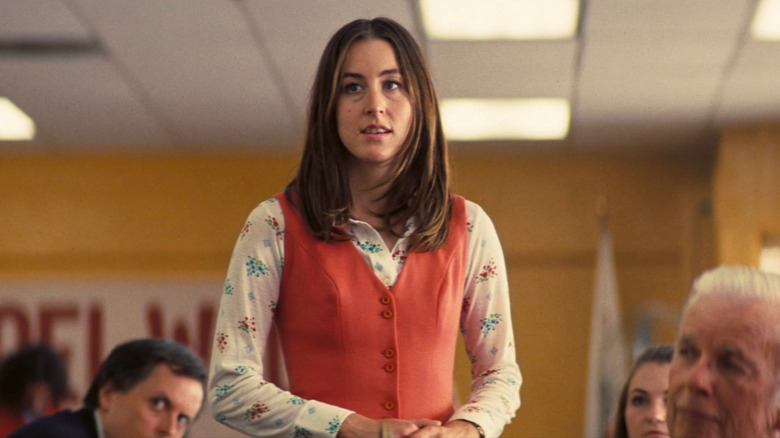
One of the solutions different awards bodies have for dealing with younger performers is to create a category exclusively for younger performers. They'll designate it to be actors under 25 or call it a "breakthrough" performance. At the 1974 Golden Globes, Tatum O'Neal wasn't just nominated for Best Actress in a Musical or Comedy. She also won their now discontinued "New Star of the Year — Actress" category. Variations of this kind of category have existed for decades, and many people have lobbied for the Academy to adopt a similar category. I vehemently disagree.
Rising stars and younger performers are already diminished in the eyes of awards voters, which is why they can so often be shuffled over to the supporting categories when they are the leads of their respective films. Creating another category exclusively for those performers only serves to further ghettoize those actors and fortify the existing ones with more dues-paying stalwarts. I see this the same way I do the Best Animated Film or Best Documentary categories. "If we nominate them there, then we don't need to concern ourselves with nominating them elsewhere," goes the thought.
If someone like Alana Haim in "Licorice Pizza" or Rachel Zegler in "West Side Story" comes along, take the swing and nominate them in the category they belong. A little over a year ago, those two women received so many "breakthrough" nominations but rarely were in actual Best Actress races. And I know the thought behind so many people making that call was them being hesitant to prop up someone new that high that quickly. It is okay to be bowled over by someone in their early 20s — or even a 10-year-old — in a movie. Own up to it, and nominate them accordingly. They deserve that respect.
Read this next: The 14 Best Film Acting Debuts Of All Time
The post The Youngest Oscar Winner Ever Is A Shining Example Of One Of The Oscars' Biggest Frauds appeared first on /Film.
0 Comments